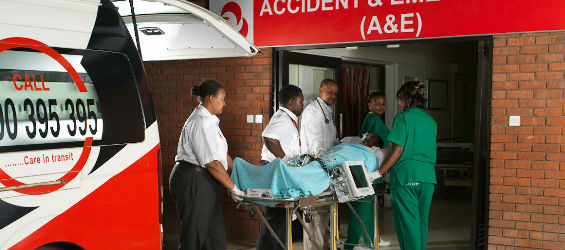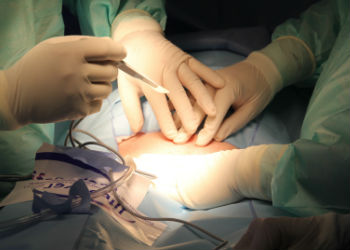Multi-disciplinary team
Our cardiac programme provides an onsite multi-disciplinary team of cardiac surgeons, cardiologists, cardiac anaesthesiologists, interventional radiologists, vascular surgeons, clinical perfusionists, qualified cardiac nurses, dieticians, physical therapists and cardiac co-ordinators. This team expands to include immediate care from onsite physicians from every medical speciality required. The doctors and the paramedical staffs strive to provide you with the safest and best medical care possible.
Innovation
Our surgeons are committed to continually study and evaluate new methods of surgical treatments and improving surgical outcomes. One such area is the protection of the brain and neurological system during bypass operations. Patients will benefit from new therapies not readily available at other medical centres. We also offer comprehensive treatment for congestive heart failure including surgical ventricular remodelling procedures.
Research
Our cardiac specialists include a multidisciplinary team of compassionate and caring healthcare professionals and faculty of the Aga Khan University Medical College embrace and promote evidence-based medicine and strives through research, quality improvement projects, and innovations to fill gaps in cardiovascular medicine in and around East Africa.
We strongly believe in a multidisciplinary approach in taking care of our patients and their families.
Our team is committed to excellence, and our goal is to provide safe and compassionate care to our patients and their families.
Your cardiac surgeons and cardiologist will speak with you and your family during your entire stay in the hospital. We are providing this book to you and your family to guide you through the experience at the heart centre.
Do not hesitate to ask your consultant or other healthcare team members any question before, during and after your operation. We hope that this information is helpful to you and your family.
Risk Factors of Heart Disease
There are many different forms of heart disease. The most common cause of heart disease is the narrowing or blockage of the coronary arteries, the blood vessels that supply blood to the heart itself. This is called coronary artery disease. It usually happens slowly over time and it is the major reason people have heart attacks. High blood pressure, heart valve disease, heart failure and stroke are also forms of heart disease.
Some people are born with heart disease but the major risk factors include:-
- High blood pressure
- High blood cholesterol
- Diabetes
- Obesity
- Smoking cigarettes and tobacco
- Physical inactivity
- Hereditary: Tends to run in the family
- Old age
In addition, contribution factors can include:-
- Stressful lifestyle
- Use of birth control pills
- Over consumption of alcohol
You can help reduce your risk of heart disease by taking steps to control factors that put you at greater risk:-
- Control your blood pressure
- Lower your cholesterol
- Don’t smoke
- Get enough exercise
- Reduce stress
Cardiology Services Information
Aga Khan University Hospital, Nairobi’s ground breaking cardiology programme is a reflection of the important contributions the Hospital is making in the community in the fight against cardiac diseases. The quality of our cardiac care has been considerably enhanced, thanks to the strategic vision of the Hospital, its physicians and the community. The cardiology programme can now offer a continuum of high quality health services, ranging from the emergency treatment of many heart diseases, such as heart attack, high blood pressure and heart failure, through surgery and into rehabilitation. There are several sections of the cardiology programme at the Hospital that offer services aimed at the diagnosis, treatment and rehabilitation of patients suffering from heart disease.
Emergency Care

The time between the onset of pain from a heart attack and emergency treatment is vital for survival. The longer the heart is deprived of life-saving blood, the more heart muscle is lost and the greater the risk of the patient dying. Modern treatment can open up blocked arteries quickly, but to be fully effective, treatment must be given as soon as possible after the heart attack. That’s why good teamwork is so essential. Emergency nurses and physicians must quickly recognise patients suffering from heart attacks and quickly start treatment to dissolve life-threatening clots. This “door-to needle” time, as it is called, is critical. The faster the “door-to needle” time, the better the outcome for patients. Our advanced triage systems and specialised clinical pathways are on the leading edge of cardiac care. These systems ensure that patients with all types of heart disease are treated rapidly and with expertise.
Open Heart Surgery
 Heart surgery is a surgical operation done to correct problems with the heart. More than half a million heart surgeries are done each year around the world. Heart surgery can be performed on both children and adults. The most common type of heart surgery for adults is Coronary Artery Bypass Grafting (CABG). During CABG, surgeons use healthy arteries or veins taken from another part of the body to bypass blocked heart arteries.
Heart surgery is a surgical operation done to correct problems with the heart. More than half a million heart surgeries are done each year around the world. Heart surgery can be performed on both children and adults. The most common type of heart surgery for adults is Coronary Artery Bypass Grafting (CABG). During CABG, surgeons use healthy arteries or veins taken from another part of the body to bypass blocked heart arteries.
CABG relieves chest pain and reduces the risk of heart attack. Another common type of heart surgery performed at the Hospital is valve surgery as a result of heart valve disease. Heart valve disease occurs when a valve doesn’t work well. A valve may not open fully or may have problems closing. If this happens, blood doesn’t move through the heart chambers as it should. During heart valve surgery, one or more valves are repaired or replaced. Repair involves the mending of a valve to make it work better. Replacement entails the removal of the diseased valve and the insertion of a new one.
Paediatric Cardiology Clinic
The paediatric cardiology department at Aga Khan University Hospital, Nairobi provides tertiary level of care for children with complex congenital and acquired heart diseases accross the region and beyond. The section of paediatric cardiology provides high quality, evidence-based care to children suffering from cardiovascular pathology, both congenital and acquired, and follows a multi-disciplinary approach in taking care of patients as well as their families.
Concomitant to both the inpatient and outpatient services, paediatric cardiology at AKUH,N is set to embrace all kinds of sub-specialities and services within the cardiac field including cardiac imaging, cardiac catheterisation, electrophysiology and surgery which are all vital in the management of paediatric cardiovascular diseases.
The paediatric dedicated echocardiography laboratory at AKUH,N performs regular two-dimensional (2D) and three-dimensional (3D) echocardiographic examinations for neonates and children with congenital and acquired heart diseases. Fetal echocardiography is essential for early detection and management of Congenital Heart Diseases (CHDs). Babies with CHD diagnosed antenatally go through a multidisplinary planned delivery involving the Obsterician, Neonatologist, Cardiologist and team of nurses in both maternity and neonatal intensive care units.
Parents also go through regular counselling sessions with a post-natal care plan immediately set. Cardiac computed tomography (CT) angiography and cardiac magnetic resonance imaging (MRI) are used frequently in the evaluation of children and young adults with CHD.
At AKUH,N, several cardiac interventional procedures are performed to treat a wide spectrum of CHDs in children. These include device closure of patent ductus arteriosus (PDA), atrial septal defect (ASD) and ventricular septal defect (VSD), valvular balloon dilatation, arterial stenting and emergency balloon atrial septostomy.
